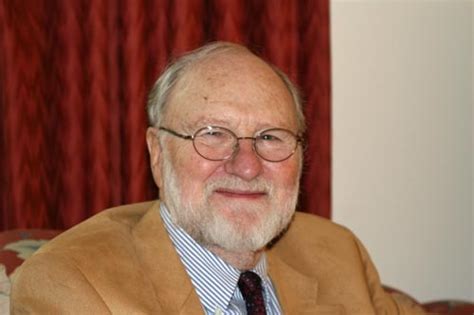A Quote by Willard Van Orman Quine
Implication is thus the very texture of our web of belief, and logic is the theory that traces it.
Related Quotes
The fact of evolution is the backbone of biology, and biology is thus in the peculiar position of being a science founded on an unproved theory -is it then a science or a faith? Belief in the theory of evolution is thus exactly parallel to belief in special creation - both are concepts which believers know to be true but neither, up to the present, has been capable of proof.
In arriving at the relevant theory about the specifics of our faculty of vision we will presumably use our eyes to gather relevant data. Based on such data we come to know about the optic nerve, the structure of our eyes, the rods and cones, etc., so as to explain how it is that vision gives us reliable access to the shapes and colors of objects around us. In reliably arriving at that theory we thus exercise the very faculty whose reliability is explained by the theory. There is no vice in this sort of circularity.
A good simulation, be it a religious myth or scientific theory, gives us a sense of mastery over experience. To represent something symbolically, as we do when we speak or write, is somehow to capture it, thus making it one's own. But with this appropriation comes the realization that we have denied the immediacy of reality and that in creating a substitute we have but spun another thread in the web of our grand illusion.
Catastrophe Theory is-quite likely-the first coherent attempt (since Aristotelian logic) to give a theory on analogy. When narrow-minded scientists object to Catastrophe Theory that it gives no more than analogies, or metaphors, they do not realise that they are stating the proper aim of Catastrophe Theory, which is to classify all possible types of analogous situations.
It is difficult to remove by logic an idea not placed there by logic in the first place. By nature, we are emotional creatures. Often we live and react based on feelings, not logic. Feelings are wonderful, but when we become tied to a particular thought or belief we tend to ignore the fact that change might be necessary.








































